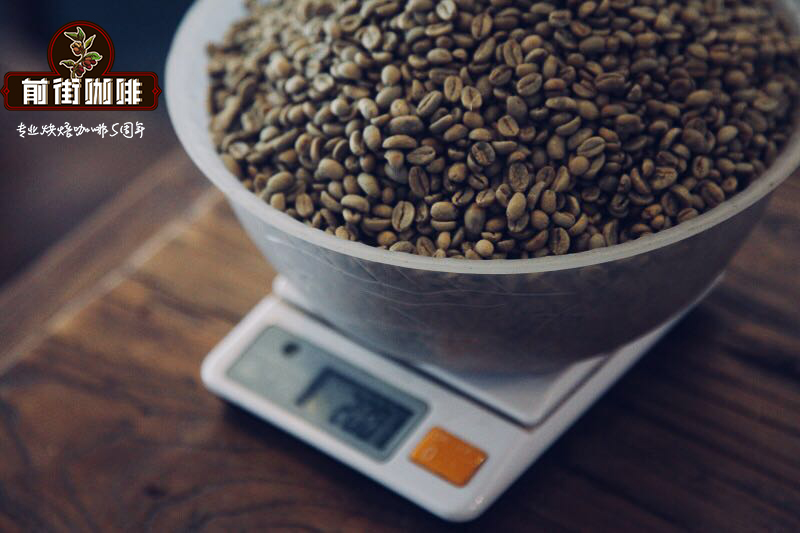Starbucks Coffee and Fairness regulations for growers-how are Starbucks coffee beans purchased?

Professional coffee knowledge exchange more coffee bean information please follow the coffee workshop (Wechat official account cafe_style)
Starbucks coffee beans >
Starbucks' ethical procurement is based on coffee and fairness norms for growers. In 2001, Starbucks worked with the non-profit environmental organization International Conservation Organization (Conversation International,CI) to develop guidelines for coffee procurement, also known as PSP (priority supplier Program). In 2004, Starbucks, CI and SCS Scientific Certification Systems, a third-party evaluation and certification company, developed guidelines known as fairness norms for coffee and growers.
Coffee and grower equity norms are our guiding principles in ethical procurement, let us give priority to coffee growers who must grow, process and trade coffee in an environmentally, socially and economically responsible manner. This specification is based on a model of sustainable improvement, so Starbucks encourages coffee cooperatives, farms and supply networks of all sizes to participate.
The purpose of the fair regulation design of coffee and growers is to create a better future for coffee growers on the basis of common interests, thereby ensuring the sustainable production of high-quality coffee, and the high-quality coffee needs to be produced in an environmentally and socially responsible way.
Four elements of coffee and grower equity norms: Starbucks gives priority to the purchase of coffee from growers and processing plant owners who implement coffee and grower equity norms that meet the established standards of these four plans:
Product quality: all coffee must meet Starbucks high quality Arabica coffee standards.
Economic responsibility: transparency is very important. Our suppliers need to submit payment vouchers for raw coffee beans throughout the coffee supply chain.
Social responsibility (assessed by third parties): growers and processing plant owners must provide reference for measures that improve safe, fair and humane working conditions. These include the protection of the rights of workers and the provision of adequate living conditions. Minimum wage requirements must be met and child labour / forced labour and discrimination must be addressed.
Environmental exemplars (assessed by third parties): in the process of growing and processing coffee, environmental measures must be put in place to manage waste, protect water quality, save water and energy, protect biodiversity and reduce the use of agricultural fertilizers.
Fair trade
Starbucks is one of the largest purchasers of Fair Trade Certi Fair Trade ed ™coffee, and we have purchased and sold Fairtrade coffee for more than 10 years. The goal of Fairtrade certification is to organize these small growers to work together to help them invest in their farms and communities, protect the environment, and develop the business skills they need to profit from global economic competition.
Fairtrade certification includes standards that coffee cooperatives should meet, such as fair labor regulations, organizational rights and some environmental standards. In order to obtain Fairtrade certification, coffee producers can only be growers who meet the following conditions: the coffee cooperatives and alliances to which they belong must be owned by the growers, democratically managed, and registered under the Fair Trade Register.
Fairtrade growers are guaranteed to get a price higher than the transaction price of coffee beans on the international market or above a certain minimum price. In addition, Fair Trade encourages importers to extend financial loans to coffee cooperatives while encouraging them to develop long-term trade relationships, thereby enhancing the economic stability of growers. In addition to its long-standing commitment to the procurement and sale of Fairtrade coffee, Starbucks partnered with Fair Trade of the United States and global Fairtrade in 2009 to share with small-scale growers the basic resources and expertise of growers in major coffee growing regions in Latin America, Africa and the Asia-Pacific region through the small-scale growers' Sustainable Development Initiative (SFSI).
By working together to provide growers with the market channels, technical assistance and loan support they need, groups make full use of integrated resources to improve the living standards of growers while promoting environmentally, socially and economically responsible practices.
Organic authentication
In the process of planting, processing and processing, coffee without any pesticides, herbicides and chemical fertilizers can be called "organic coffee". However, it is not legal organic coffee unless it is certified by a third party (one of the non-coffee producers and buyers).
The process of obtaining organic certification for a farm is quite long, and it can take up to three years to implement. In addition, the farm may reduce coffee production by as much as 50% at this transitional stage. When a farm changes from traditional farming to certified organic farming, it takes a long time to inject a large amount of financial investment.
Some of the certified organic coffee purchased by Starbucks is produced by growers who also participate in coffee and grower fairness norms and fair trade systems.
Brief introduction of several grinding degrees of Starbucks coffee beans
Important Notice :
前街咖啡 FrontStreet Coffee has moved to new addredd:
FrontStreet Coffee Address: 315,Donghua East Road,GuangZhou
Tel:020 38364473
- Prev

How to drink Yega Xuefei Coffee: how to drink Yega Xuefei with Ice Water
Professional coffee knowledge exchange more coffee bean information please follow the coffee workshop (Wechat official account cafe_style) boutique coffee beans Yega Xuefei Coffee produced in the mountains of Sidamo, Ethiopia, more than 5800 meters above sea level, due to the fog that surrounds the valley, so there is the beautiful name Yejasuefei, also known as witch coffee, the reason why it is famous in the world
- Next

The music played by Starbucks coffee shops, like the smell of coffee, must be strictly controlled
Professional coffee knowledge exchange more coffee bean information please follow the coffee workshop (Wechat official account cafe_style) Starbucks coffee beans Chinese people pay attention to coffee, has a long history. To be fair, Starbucks coffee doesn't necessarily take advantage of us in terms of taste alone. However, if you look at in-store music, Starbucks will
Related
- Detailed explanation of Jadeite planting Land in Panamanian Jadeite Manor introduction to the grading system of Jadeite competitive bidding, Red bid, Green bid and Rose Summer
- Story of Coffee planting in Brenka region of Costa Rica Stonehenge Manor anaerobic heavy honey treatment of flavor mouth
- What's on the barrel of Blue Mountain Coffee beans?
- Can American coffee also pull flowers? How to use hot American style to pull out a good-looking pattern?
- Can you make a cold extract with coffee beans? What is the right proportion for cold-extracted coffee formula?
- Indonesian PWN Gold Mandrine Coffee Origin Features Flavor How to Chong? Mandolin coffee is American.
- A brief introduction to the flavor characteristics of Brazilian yellow bourbon coffee beans
- What is the effect of different water quality on the flavor of cold-extracted coffee? What kind of water is best for brewing coffee?
- Why do you think of Rose Summer whenever you mention Panamanian coffee?
- Introduction to the characteristics of authentic blue mountain coffee bean producing areas? What is the CIB Coffee Authority in Jamaica?

